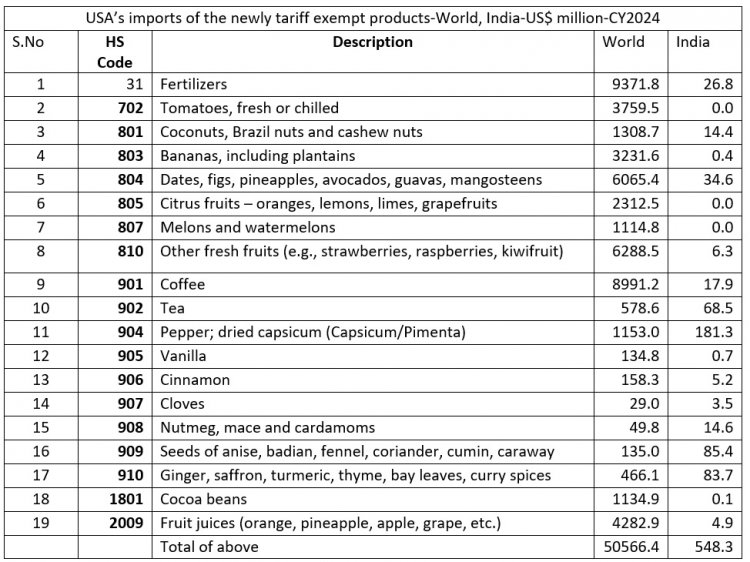- By Shivangi Sharma
- Sun, 16 Nov 2025 08:04 PM (IST)
- Source:JND
The United States has announced tariff cuts on more than 250 food products, a move that could bring limited but meaningful relief to select Indian agricultural exporters. The decision comes after months of domestic pressure in the US over rising food prices, which intensified political dissatisfaction and pushed the administration to roll back duties on a wide range of items. India, whose exports to the US have fallen sharply, dropping nearly 12 per cent in September to USD 5.43 billion after the 50 per cent tariff announcement, is now assessing the impact of this revision.
Among the tariff-relaxed products is a long list of spices, black pepper, cloves, cumin, cardamom, turmeric, ginger, and specialty teas and cashew nuts. These categories are significant for India. In 2024, Indian spice exports to the US were valued at over USD 500 million, while tea exports stood at nearly USD 90 million. The US also imported USD 843 million worth of cashew nuts globally, with India supplying around 20 per cent of that demand.
This inclusion brings targeted relief and could help stabilise exports that have faced steep declines since the 50 per cent tariffs were imposed in August 2025 as a penalty for India’s continued purchases of discounted Russian oil.
Major sectors, especially Indian seafood such as shrimp and basmati rice, did not make the exemption list, even though both categories account for billions of dollars in shipments to the US.
Why The Impact Remains Limited
While the exemptions cover roughly USD 500 million to USD 1 billion worth of Indian agricultural exports, they do little to offset the broader hit caused by the sweeping 50 per cent tariffs on most Indian goods. India’s overall exports to the US have plunged 37 per cent, highlighting the limited scope of the relief.
India lacks a significant presence in many of the US’s newly exempted lines, including tomatoes, citrus fruits, melons, bananas, and most fresh fruits, sectors dominated by Latin American, African, and ASEAN producers.
According to a Global Trade Research Initiative (GTRI) report, India’s US-bound farm exports are heavily concentrated in a few high-value categories: pepper and capsicum products, cumin seeds, ginger-turmeric-curry spices, cardamom, nutmeg, tea, cocoa beans, cinnamon, and cloves.

To fully leverage shifting US trade policy, India will need to scale production, expand cold-chain infrastructure, and diversify into mainstream horticultural exports. Without these reforms, the major beneficiaries of the tariff rollback will remain competitors in Latin America and Southeast Asia, not India.

